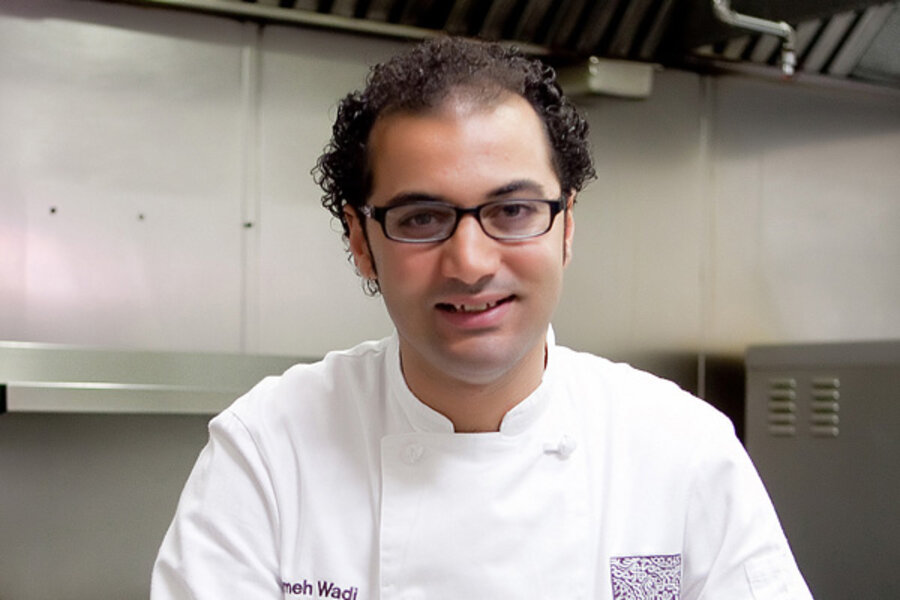Sameh Wadi, the executive chef and co-owner of Saffron, a Middle Eastern haute cuisine restaurant in Minneapolis, sees himself as a culinary and cultural ambassador.
"As more people become pluralistic in what they call home, food becomes an important connector between the past and present," says Mr. Wadi, 28, who has lived in the US since he was 14 and two years ago became an American citizen. "I think that the language of food is a language that could potentially break down barriers. It's a language that everyone understands."
Wadi grew up trailing his mother in the kitchen, critiquing her use of spices. Celebrating and preserving their Palestinian heritage while forging a new life in Minneapolis was a natural part of family life. It was also a centering force as Wadi learned to navigate a high school that was "99 percent white suburban kids who had no idea about life outside the US."
Wadi, the youngest challenger to appear on "Iron Chef America," has been nominated several times for the James Beard "Rising Star Chef of the Year" award, which recognizes chefs under 30. In the restaurant that he co-owns with his brother, Wadi strives to bridge the Middle East and the West with his heritage and his chicken bisteeya.
"From the moment I walked into culinary school I knew I had to represent my [Palestinian] culture, my ancestors," in a positive way, says Wadi. "If I can connect with someone on any level, whether they are Arab or not, I am happy with it. The connection between past and present with me is really focused on food."
– Kendra Nordin, staff writer
Next in the series: The Politicians







